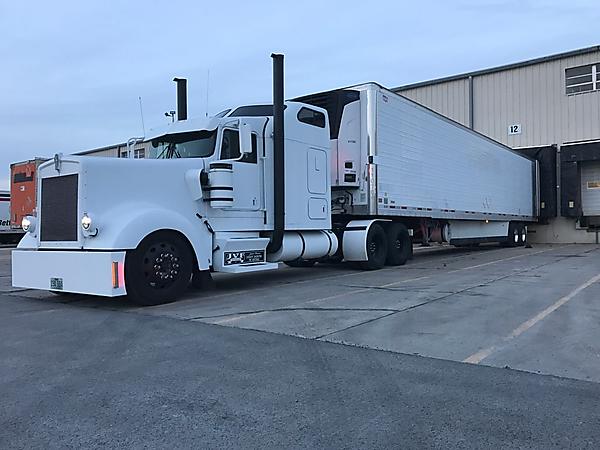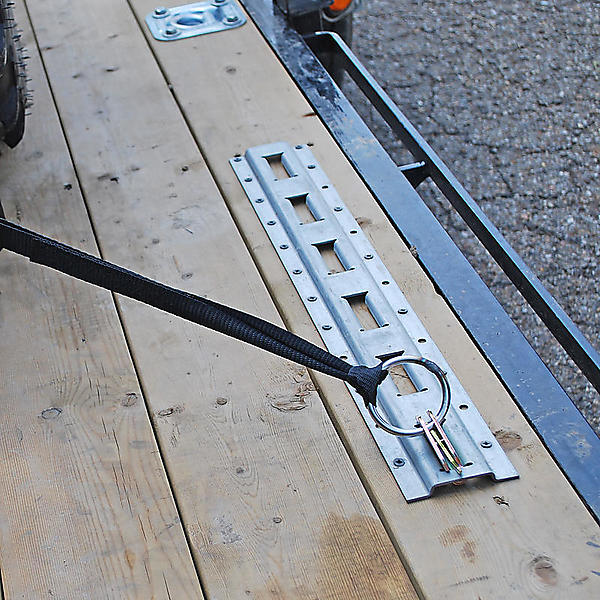
Today we will be going over things you can do to help make sure your next long haul is done with safety in mind with our top tips of things to check before a long trip and after a long haul. Let’s begin with some of our favorite tips from professional truck drivers with on the road experience.
Checking The Engine Oil Level on your Semi Truck
No matter if you are checking the oil of your rig to make sure it is within normal operating levels or changing the oil this is one of the best preventative maintenance tips that anyone who is on the road often can do. Some of the things that you should avoid doing is adding oil to levels that are low and expecting it to be the same as someone who has recently changed the oil in their rig. This is one common myth that we see professional drivers doing often and should be avoided at all costs.
Sludge buildup can remain inside of the old low reading oil levels inside of your rig causing the oil to not function the same as new oil and cause issues over time. Another issue with doing so is your oil filter has not been changed potentially leaving all of the filtered debris inside of oil filter making the filter less efficient.
Inspecting Your Semi Truck and Tractor Trailers Tires
One of the more commonly checked pre-trip inspections should always include your tires on your big rig. You never know when a tire is dry rotted, flat, low on air, or even at the perfect level. Tires that are pumped up evenly allow for better fuel economy as well as a much smoother ride. Tires that are low on air on one side of the big rig can easily start to pull the rig in that direction making a normally smooth trip a trip that you can’t wait to be over.
It is extremely important to check your tire’s air pressure before and after every trip to ensure you are not leaking air or have a damaged wheel. Wheels can be damaged in the tire or the rim from potholes and other debris that are run over in the roadways and can both easily cause air to escape causing flats over time. Rims can be destroyed from anything from potholes, sharp edges, rocks, and other debris in the roadways that can also make your wheels flat causing the rim to need to be replaced or repaired depending on the location of the damage.
Safety Gear & Auto Emergency Equipment
Auto emergencies can happen when you least expect it such as a breakdown, accidents, debris in the roadway, a tire explosion, or your rig needs to cool down on the side of the road due to low coolant levels. This makes having safety gear and emergency equipment such as a cell phone, spare tire, jack, breaker bar, screwdrivers, hammers, and a basic toolbox essential to any big rig driver. You should also include things like road safety flags such as a reflective warning triangle, bright clothes to be spotted moving around your rig, as well as the use of road flares at night where visibility may be more limited. Remember the number one thing that most people in a bad situation want is having tools that they wish they had to fix an easy fix to keep you on the road for longer periods. Maintaining your rig is equally as important as driving it and keeping up with the maintenance can greatly reduce the time of being not on the road.

How to inspect Tie Down Straps
Equally as important as the rest of the inspections on this post is inspecting your straps when you are securing cargo in the back of a tractor-trailer or flatbed trailer. No matter if you are using E Track Straps, Cam Buckle Straps, Ratchet Straps, or even Winch Straps inspecting your straps is critical. Straps can become weakened over time or from friction (rubbing that generates heat) during transportation from sharp edges. Polyester mesh tie down webbing is great at being durable but can only do so much to help prevent against friction so it is extremely important before and after every use of a tie-down strap to visually look over your tie-down straps. If you notice that the straps are damaged you may need to replace one end or both ends of the winch strap or ratchet strap. You can view our tie-down straps we sell here.

Cleaning & Washing Your Rig Between Long Trips
This is one of the more uncommon things to expect that drivers should inspect before and after every long haul but it has some great reasons behind it. Every rig that is on the road for long periods of time can easily attract bugs, dust, water spots, or other debris such as mud across the truck and trailer. As the rig becomes dirtier the longer you wait between wash periods can greatly reduce the amount of visibility on the windows as well as covering reflectors, taillights, or headlights which are all things you and other motorists need in order to see. Help play your part in reducing accidents and increasing your visibility in the day and night.

Pre-trip Inspection Before Leaving
Before getting on the road for a long trip it is critical to make sure to have a pre-trip inspection in order to verify your rig is up to road safety standards and is also roadworthy. Roadworthy is knowing your rig is safe to be on the road, often you find motorists on the side of the road who have not followed these safety aspects with tire issues, engine problems, or even having issues with overheating.
Some of the things to check or bring on your next trip:
• Tailights
• Turnsignals
• Headlights
• Brakes + Air
• Pillows & Blankets if you intend on sleeping in your rig
• Hoses are connected from the rig to the trailers
• Windshield is clean and visible
• Washer Fluid
• Brake Fluid
• Engine Coolant
• Oil Levels in range
• Cellphone & GPS Chargers
• Fuel is loaded
• Snacks, Drinks, and Meals for the trip are ready
• Log Books or E Logs filled in correctly and ready to go